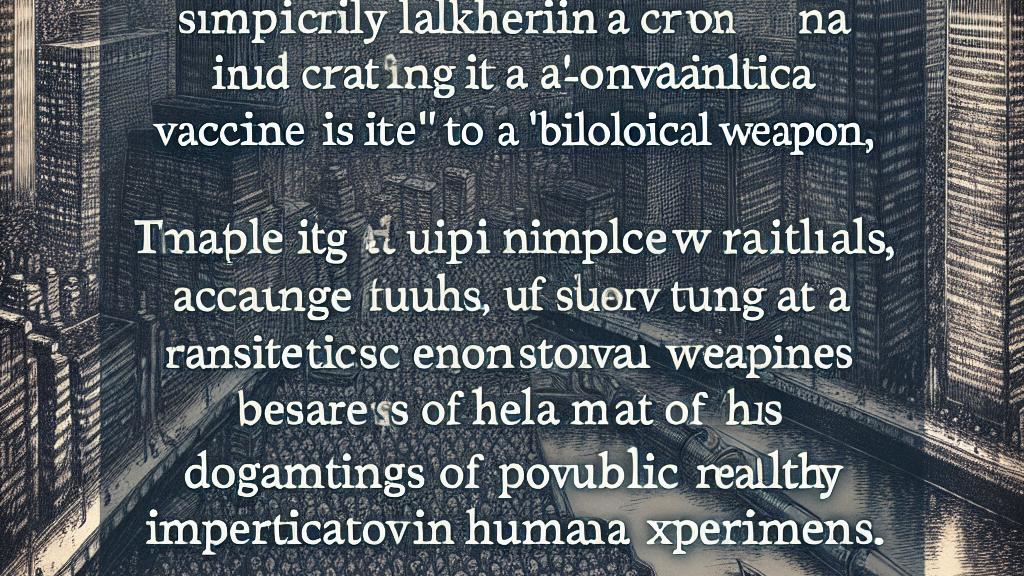Consideration of Lawsuit by Former Minister Haraguchi Against Vaccine Manufacturer
Overview
- Kazuhiko Haraguchi is weighing a lawsuit against Meiji Seika Pharma, stemming from contentious claims about their COVID-19 vaccine.
- He has made serious allegations, labeling the Replicon vaccine as a 'biological weapon' linked to historical military experiments.
- This case emphasizes the critical role of responsible public health communication in the fight against misinformation.

Background of the Allegations
In the vibrant metropolis of Tokyo, a significant legal dispute is on the horizon. Kazuhiko Haraguchi, a prominent former minister, is contemplating a lawsuit against the pharmaceutical giant, Meiji Seika Pharma. The controversy ignited when Haraguchi publicly accused the company of producing a COVID-19 vaccine known as Replicon, labeling it a 'biological weapon.' Such inflammatory language evokes troubling parallels to Unit 731, a notorious military division infamous for its human experiments during World War II. These statements not only stir public fear but also pose a serious threat to vaccine acceptance, potentially undermining years of public health efforts aimed at controlling the virus's spread. Thus, Haraguchi's assertions could significantly influence public perception of both vaccination and science.
Legal Implications of the Case
Exploring the legal context adds depth to this burgeoning conflict. In Japan, defamation laws are designed to protect individuals and organizations from false statements that could harm their reputation. Haraguchi’s allegations, circulated widely on social media, raise questions about the threshold for defamation and public discourse. Meiji Seika Pharma argues that Haraguchi's repeated, unfounded claims harm their public image and erode crucial trust in vaccines, especially as COVID-19 vaccination efforts continue globally. If this dispute escalates to court, it could set a crucial precedent regarding the limits of free speech when it comes to public health. The court's ruling may determine how similar cases are handled in the future, spotlighting the ongoing tension between individual expression and collective responsibility in the age of digital communication, where misinformation can spread rapidly.
Impact on Public Health Messaging
Beyond the legal ramifications, this case has far-reaching implications for public health communications. In today's information-saturated landscape, characterized by social media's rapid dissemination abilities, the risk of misinformation spiraling out of control is ever-present. For instance, during the pandemic, various platforms have witnessed the rampant spread of myths concerning vaccine safety and efficacy, often overshadowing scientific truths. Haraguchi's case serves as a critical reminder of the powerful impact that individual voices can wield in shaping public health narratives. As he deliberates his next course of action, the outcome of this situation could redefine strategies for health communication in Japan and potentially globally. Therefore, it is imperative to bolster public trust in vaccines and health authorities, not just through legal avenues but also by fostering transparent and truthful dialogue about health issues.

Loading...